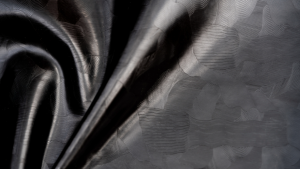Wikipedia is currently the 5th most popular website in the world but since it was founded in 2001, it's seen little transformation in the demographics of the people behind the machine.
Surveys indicate that only 10 per cent of Wikipedia editors identify as female and only 20 per cent of editors come from the global south (Asia, Africa and Latin America).
The skewed demographics have led to skewed contributions. In general, issues covering Western popular culture, notable Westerners, science, and technology are extensively covered but non-English versions of the platform are not as meaty in comparison.
These numbers would have made sense back when Wikipedia first started with a group of white men in America but they don’t reflect the demographics of people who use the internet in 2018, explains Doug Scott, the head of South Africa’s Wikipedia Chapter.
“There’s a broad consensus in the community that if we want to achieve our goal, we need to expand the tent,” says Scott.

Geolocated items being filled in on Wikidata from 2014 to 2017—an example of knowledge gaps being filled in over time. Image by Denis Schroeder/Wikimedia Germany CC0.
Wikimedia, the parent of Wikipedia and other commons projects, plans to expand the tent in two key ways: outreach and theme. To respond to the latter, diversity was made central to Wikimedia’s annual conference Wikimania, which takes place in Cape Town this weekend. Specifically, the theme reads, “Bridging knowledge gaps—the ubuntu way forward”.
The summit sees about 900 delegates yearly, the majority of which hail from North America and Europe. Its 2017 iteration granted 144 full and partial scholarships to attend the event, which was hosted in Canada.
The three-day conference includes keynote addresses from experts in the field, over 100 community submitted presentations, a hackathon and pre-conference workshops that cover topics like outreach in Africa, library partnerships, legal threats to free knowledge, Wikipedia in minority and endangered languages, the gender gap, and more.
This is the first year that the entire conference will be structured to respond to one central theme, says Scott. “There’s a need for more female editors editing on subjects of greater interest to people and who are more knowledgeable about that sort of thing. There’s also a need to expand the gender diversity beyond male and female: the LGBTQ community and their interests and issues,” he adds.
“More importantly, for us here in South Africa, expanding the geographical dimension. So more people from Africa editing, more people from East Asia editing Wikipedia, more people from sub-continents so that knowledge types and knowledge systems from these places are also represented on Wikipedia. That’s really important.”
Secondly, there’s the usability of the technology, which Scott says can be made more inclusive through outreach as Wikipedia wants to not only gather knowledge from every corner of the globe but also make that knowledge accessible to all.
This aim has led to an easy-to-use mobile interface, editing workshops in different corners of the globe and more. Its desktop version is also no-bells-and-whistles tech and its archive of 44 million entries is a treasure trove.
But the key to the platform’s success is its community – no one gets paid to add pages to Wikipedia. Thousands of volunteers compile knowledge on everything from the different variations of USBs to a list of unexplained sounds.
Each entry is checked, referenced and aggressively peer-reviewed based on its notability and so far, much of it has come back accurate enough to be comparable to the rigour of the Encyclopaedia Britannica.
To expand beyond its current threshold, the platform recognises a need for inclusivity; the need for the stories, cultures and knowledge about underrepresented regions, identities and languages to come from those people themselves rather than the interpretations of outsiders. But it isn’t as easy as simply adding more voices to the fray.
Over the years, Wikipedia has developed its own strict conventions in terms of style, referencing and jargon. Most important is the distinction between what’s notable and what isn’t, and who gets to decide those parameters.
For instance, an entry on an obscure fountain in the West will have a better chance of staying on Wikipedia’s database than an obscure fountain in an underrepresented country because a number of notable academic journals or mainstream publications will have literature on hand that lends the fountain in the West more legitimacy. Whereas an untold story, one that is factual but not backed by sources that Wikipedia’s current editors deem “notable” is likely to be identified for a ‘speedy delete’.
“It’s a Catch-22”, says WikiAfrica’s Joonji Mdyogolo. “Understanding how Wikipedia works is not so easy. We find that training helps to teach people the backend, the jargon and how to effectively reference so that their content "stick" on Wikipedia, so it does not get kicked off the site by editors, most of whom sit in the West.”
Ralph Straumann, Mark Graham, Bernie Hogan, Ahmed Medhat, Oxford Internet Institute. This research is supported by the International Development Research Center (IDRC). See the interactive graph.
WikiAfrica, a project by the Africa Centre, is one of the many projects worldwide that are working independently of Wikimedia to bridge the knowledge gap in the website’s content.
Funded by the National Lotteries Commission and also working independently of South Africa’s Wikipedia Chapter, WikiAfrica hosts workshops to teach interested people the ins-and-outs of Wikipedia’s knowledge creation process.
So far, WikiAfrica has trained 21 people. Mdyogolo says, “We've published hundreds of fascinating untold stories about SA so far: about women leaders, geology and nature, politics, events, culture and heritage. It's exciting just to look at the bank of stories we have already published.
“Like the Bloemfontein women's anti-pass campaign, ANC pass law campaigner and ANC veteran the late Florence Matomela, Lebollo (female and male circumcision among the Sotho). Queen Manthatisi (leaders and warrior of the Thlokwa people). the rich Vaalharts Valley in the Northern Cape, the Fingo Festival in Grahamstown.”
Internet access is another definitive barrier in knowledge creation on the platform but programmes like Kiwix and WikiFundi are working to give people access to Wikipedia’s resources in offline environments and both have seen some success in recent years.
For the platform itself and the people who see its importance in the culture of history-making on the internet, there’s still a lot of work to be done.
Read more about Wikimania 2018 and how you can get involved or get in touch with WikiAfrica to tell untold stories. Keep abreast of the latest developments in the platform's mission at Design Indaba, an official media partner for Wikimania 2018.
Interested in how tech influences how we tell our stories? Watch Arjun Harrison-mann's Design Talk
#RightsNotGames makes protesting accessible for disabled people | Design Indaba
The UK government implemented austerity measures in 2016 that adversely affected disabled people. The United Nations labelled the cuts to their benefits "grave and systematic" human rights violations. Design Indaba Global Graduate Arjun Harrison-Mann felt the effects of this policy change close to home.







